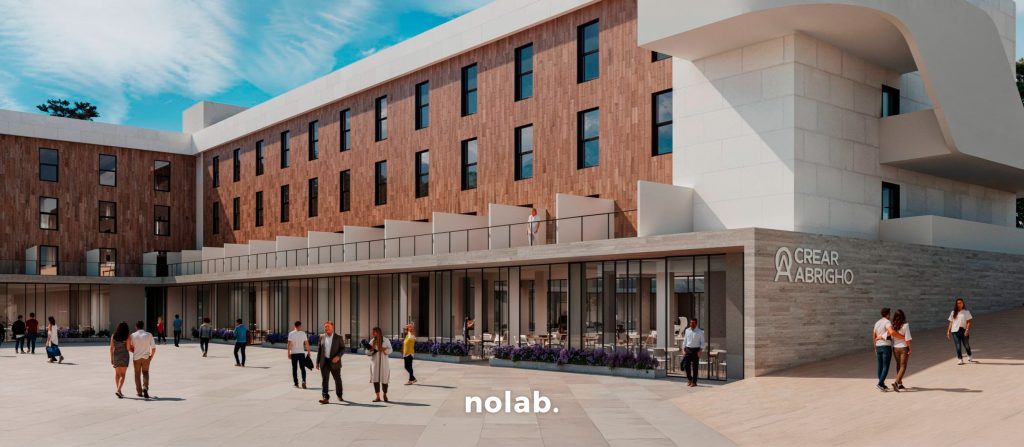It is well known that buying a pre-sale apartment is an excellent opportunity to acquire a property. This is because the price is usually much lower in this mode of purchase. Even so, there are some risks when opting for pre-sale, so you should follow these steps to make a truly safe investment and avoid taking risks. That is why in Gran Reforma we offer you this guide with 6 points you should know before buying in presale.
According to information from the Mexican Association of Real Estate Professionals (AMPI), buying in pre-sale can save between 15 and 20%, although it can reach up to 30%. The prices of a finished building are usually higher than those of a pre-sale property. This happens because with a completed project the developer adds unforeseen costs in terms of materials, permits, labor and others.
Another important fact is that when the development is completely finished, the property can increase its value by
to increase its capital gain
between 15% and 20%, according to the
Mexican Association of Real Estate Professionals (AMPI).
Pay attention to the following points to buy an apartment in presale
1. GET TO KNOW THE DEVELOPER AND THE PROJECT
- Check that the developer or real estate company is a serious and formally established company, otherwise it will be very difficult to obtain legal protection. For this you have to ask for all the documentation confirming that the company has the:
- building rights and
- the land use license.
- Check the
Commercial Bureau of the Federal Consumer Protection Agency (Profeco)
A list where you can verify the reputation, the behavior of the service providers and their complaint status, and their debts of the developer. - In relation to the property, you have to ask for a visualization of the sample house or the construction model.
2. CONTRACT DOCUMENTATION
- The contract must be registered with Profeco and it is always advisable to consult with a real estate professional or a lawyer.
- It should include everything concerning the amounts to be paid or possible penalties that may be incurred by both the developer and the buyer.
- In addition, it must contain a detailed description of the property you are buying, stating:
- the total square meters of construction,
- details such as finishes,
- parking,
- accessories (such as integral kitchen),
- distribution and
- location of the construction.
- You must have a document in which you specify the details of the house and if the price includes finishing works in your future home.
3. The model is not enough to buy a house.
- You should always ask to visit the sample apartment and ask if it is a true copy of the property you are acquiring. If not, make sure you understand all the changes that exist against the property such as size, location, finishes, etcetera.
4. Ask the seller to show you the following documents:
- Construction plans, land use permits, deed evidencing ownership of the land on which the development is being built. There must also be no debts or mortgages that compromise the land, payment of the corresponding liens, a construction license and a certificate stating that the development will have the necessary services for residential use (water, electricity, sewage, etc.).
5. BE SURE OF THE WAITING TIME
- Generally, it takes six to 18 months for the project to be completed.
- But you have to check with the developer to make sure how long you will have to wait, because if this period is exceeded, and if the contract specifies it, you are entitled to compensation every month.
6. Know how the law protects you
In addition to the recommendations, another fundamental point is to know that if you purchase your home through the pre-sale scheme, you are covered by the Federal Consumer Protection Law (LFPC). This standard states that:
- 1. The supplier shall make available to the consumer, the complete executive construction project, as well as the respective model and, if applicable, the sample property.
- 2. The documents proving the ownership of the property. Likewise, it must inform about the existence of encumbrances affecting the property, which must be cancelled at the time of signing the corresponding deed.
- 3. Information on the conditions of payment of contributions and public services.
- 4. The authorizations, licenses or permits issued by the corresponding authorities for the construction, regarding technical specifications, safety, land use, the type of materials used in the construction, the basic services available, as well as all those required by the applicable legislation.
- 5. Information on the characteristics of the property, such as the size of the land, built surface, type of structure, installations, finishes, accessories, parking space or spaces, areas of common use with other properties, percentage of undivided ownership, if any, services available and general physical condition of the property;
- 6. Information on the additional benefits offered by the supplier in case the operation is completed, such as special finishes, curtains, tiles and integral kitchen, among others.
- 7. The payment options that the consumer can choose, specifying the total amount to be paid in each of the options.
- 8. In the case of credit operations, indicating the type of credit involved, as well as a projection of the amount to be paid, including, if applicable, the interest rate to be used, commissions and charges. In the case of a variable rate, the reference interest rate and the formula for calculating such rate must be specified.
- 9. If applicable, the mechanisms for modification or renegotiation of payment options, the conditions under which this would be done and the economic implications for both the supplier and the consumer;
- 10. The conditions under which the deed process will be carried out, as well as the disbursements other than the sale price that the consumer must make, such as deed expenses, taxes, appraisal, administration, credit opening and investigation expenses. If applicable, costs for accessories or complements;
- 11. The conditions under which the consumer may cancel the operation, and the existence and constitution of mortgage, fiduciary or any other type of guarantee, as well as its instrumentation.
Source: Expansión México and Forbes










